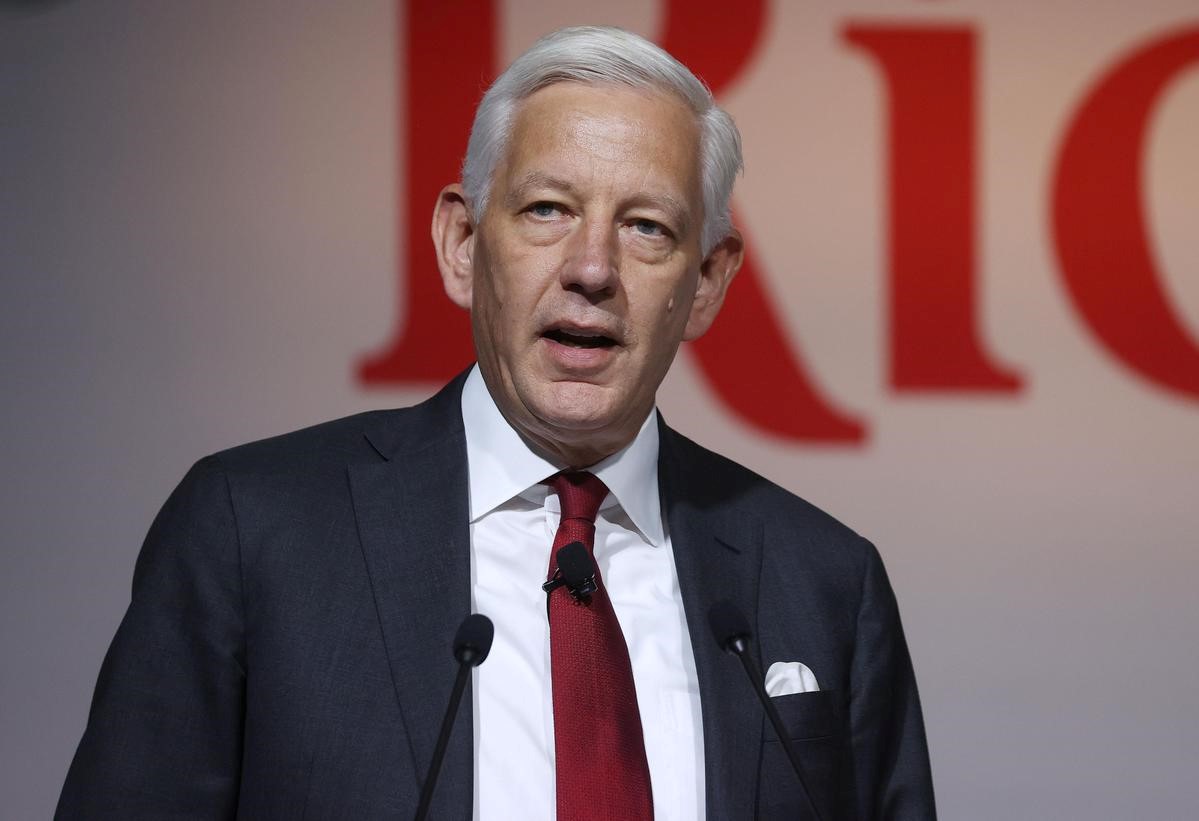您想继续阅读英文文章还
是切换到中文?
是切换到中文?

THINK ALUMINIUM THINK AL CIRCLE

The rush to discover additional ventures in transition materials has instigated a reassessment of strategy at Rio Tinto. This involves an inclination towards smaller mining operations and potentially exploring more precarious, less-established locations.

On October 6, 2023, Dominic Barton, Rio Tinto's chairman, indicated a more pronounced focus on aluminium, as customers are increasingly willing to pay extra for eco-friendly, sustainable products. He also emphasized the company's aspiration to participate in the growing lithium market.
Dominic Barton mentioned that Rio Tinto's fresh strategy might involve embracing projects that commence on a smaller scale and have the potential to grow, often in collaboration with government or local partners, instead of exclusively pursuing the largest and most immediately operational mines.
Dominic Barton addressed at the mining summit in London, “The bias, at least on Rio’s side, is big – that it’s better, big, fast and hulked up. We need to be thinking about a more longer-term approach within countries and working with others.”
Rio Tinto primarily operates in Australia and North America, with additional projects in South America, South Africa, Oman, Guinea, Mozambique, Madagascar, and Mongolia. The chairman of the global mining and metal giant noted that certain Central Asian nations have inquired about Rio's absence in their regions, yet, from the company's perspective, some of these places pose considerable geopolitical risks.
The chairman asked, “There are minerals, there’s hydropower, but there’s also risk to investors. How do we think about that?"
“Working with partners is a good thing to do. Especially it could be a local partner, it could be more of a sovereign type of partner. But I think we have to be thinking about doing that, more working with other mining companies.”
He suggested that this might entail venturing into nations with limited exploration and adopting innovative methods for economic growth.
“We’re going to have to look and help build. We’re going to have to probably work differently in those countries in terms of how we do economic development,” he explained, citing Guinea as an example.
“Obviously, Rio Tinto, we can’t do education and health care. But I think there’s a role we can play in ensuring those capacities are there. Rio had undergone a process in Mongolia, home to the huge Oyu Tolgoi copper mine, of understanding our role in that society and the roles we need to play. We’re going to have to do more of that in other countries.”
Barton said, “Lithium was an area we want to expand and increase. The volatility in pricing is incredible where it is, but we feel that that’s going to be critically important in the energy transition ... the direction of travel is quite clear."
"The high price of lithium could prompt a drive to substitute alternative products for lithium, “But we think for a 20- to 30-year time frame it’s an important segment, if you will, that we want to move into.”
Barton dismissed recent challenges related to the cost of decarbonizing its Australian refineries and emphasized that aluminium represents a significant opportunity, particularly in light of Russia's absence from the equation.
“Just because of the sanctions and where things are, we’re now the largest producer in the Western world on the aluminium side. So we are doubling down on that,” he said.
In September 2023, the company welcomed Jerome Pecresse as the new leader of its global operations. He is scheduled to begin his role later in the current month, during what CEO Jakob Stausholm characterized as "a pivotal juncture." In June, the company unveiled a substantial $1.1 billion investment dedicated to advancing low-carbon smelting in Quebec. He highlighted that the Elysis project, a carbon-neutral aluminium smelting collaboration between Rio and Alcoa, exemplified consumers' willingness to invest in environmentally friendly products.
“That was really pushed by Apple, who basically said, ‘these phones, we would like to have more green aluminium in that’,” he said, adding that the auto industry was also willing to pay a premium.
“So we’re investing more throughout the whole chain, the research and development, the processing, on how to make it greener. And then how to grow it.”
Dominic Barton expressed less enthusiasm for nuclear energy, characterising the Ranger uranium mine in the Northern Territory as primarily a rehabilitation project rather than anything else.
“There’s a political angle to that [nuclear energy] – about how people how comfortable people are with that, and where they see it. I think there will be a need for it. There are all sorts of different views about where to prioritise. We haven’t prioritised it”, he added.
Responses








